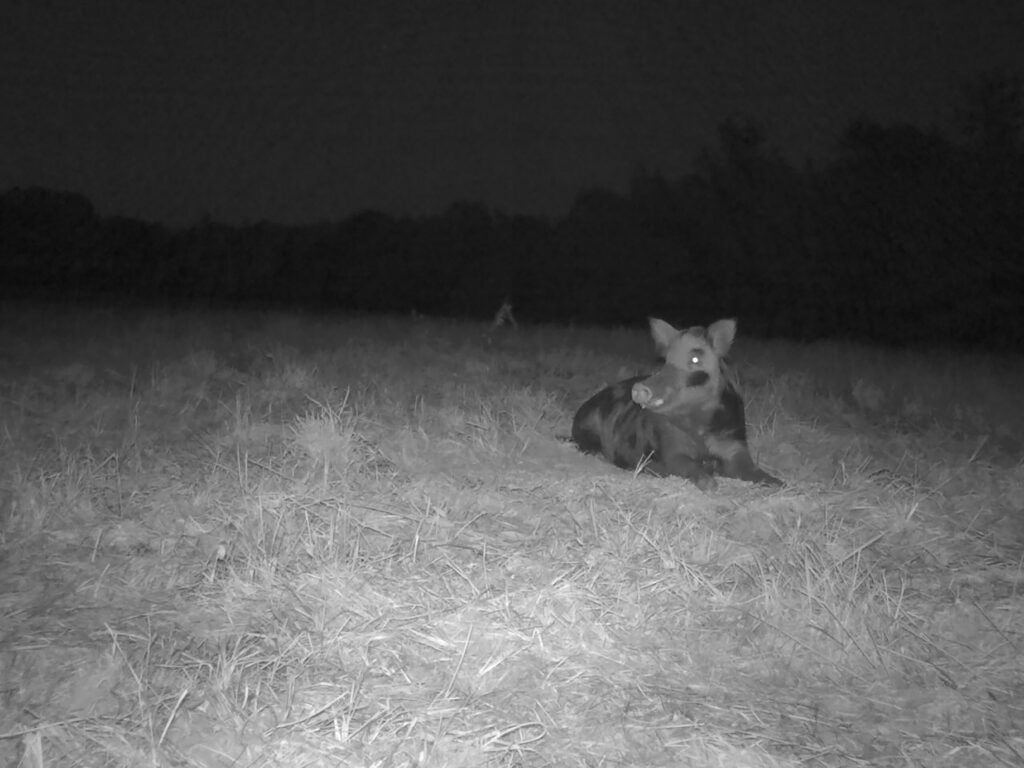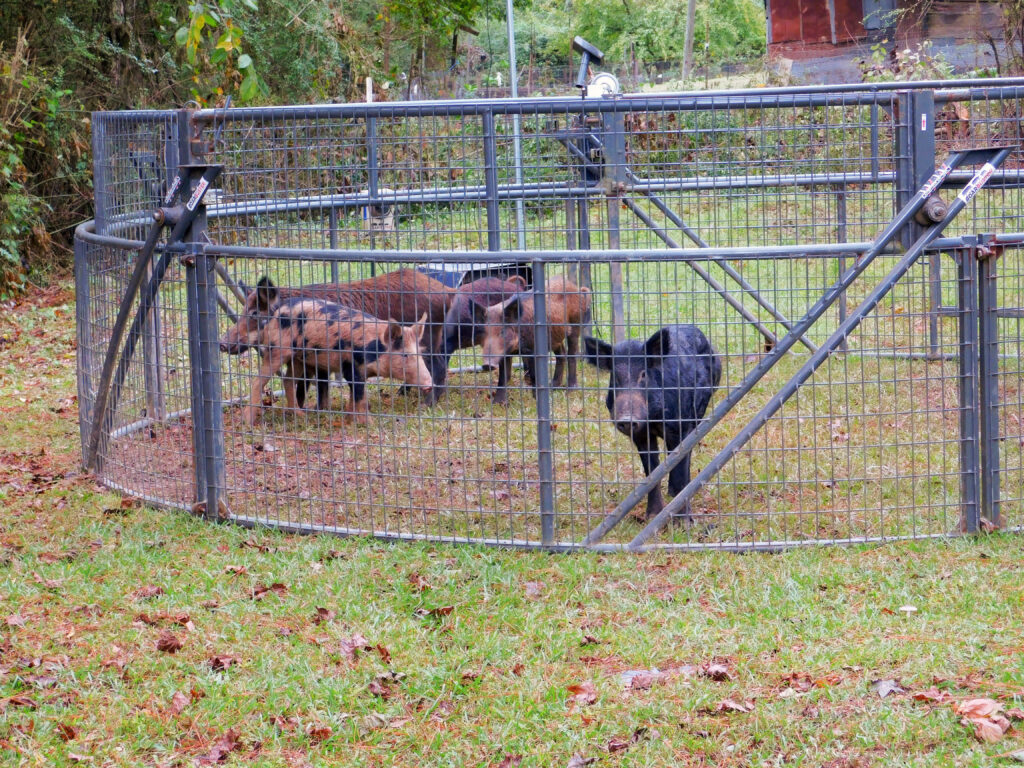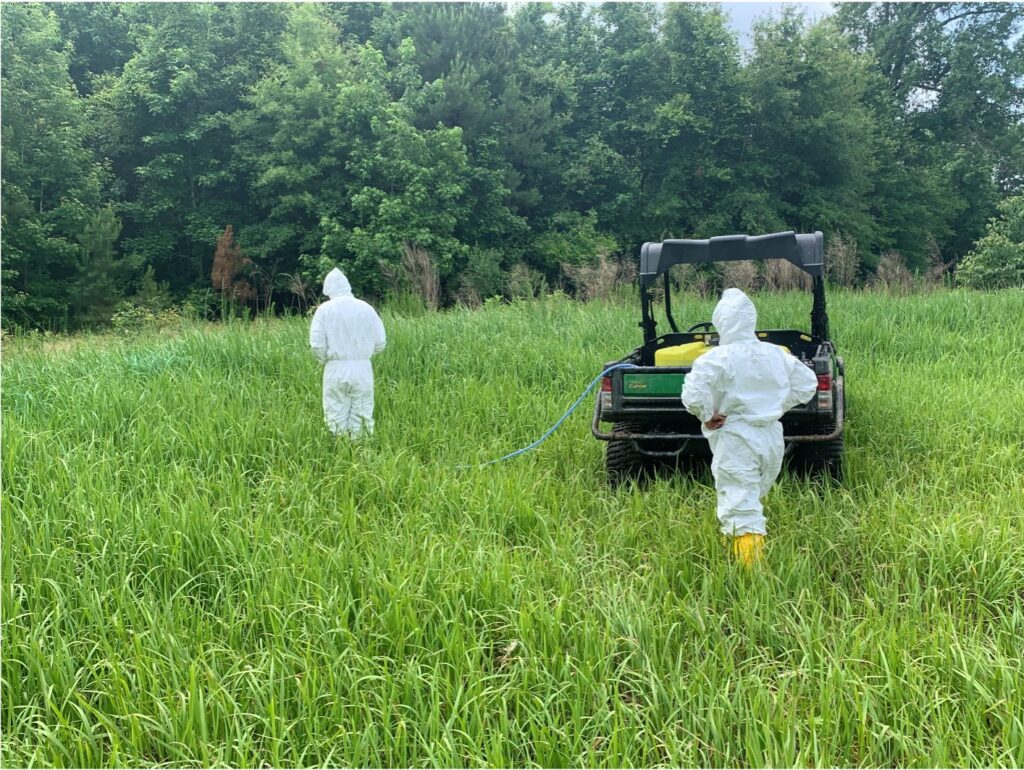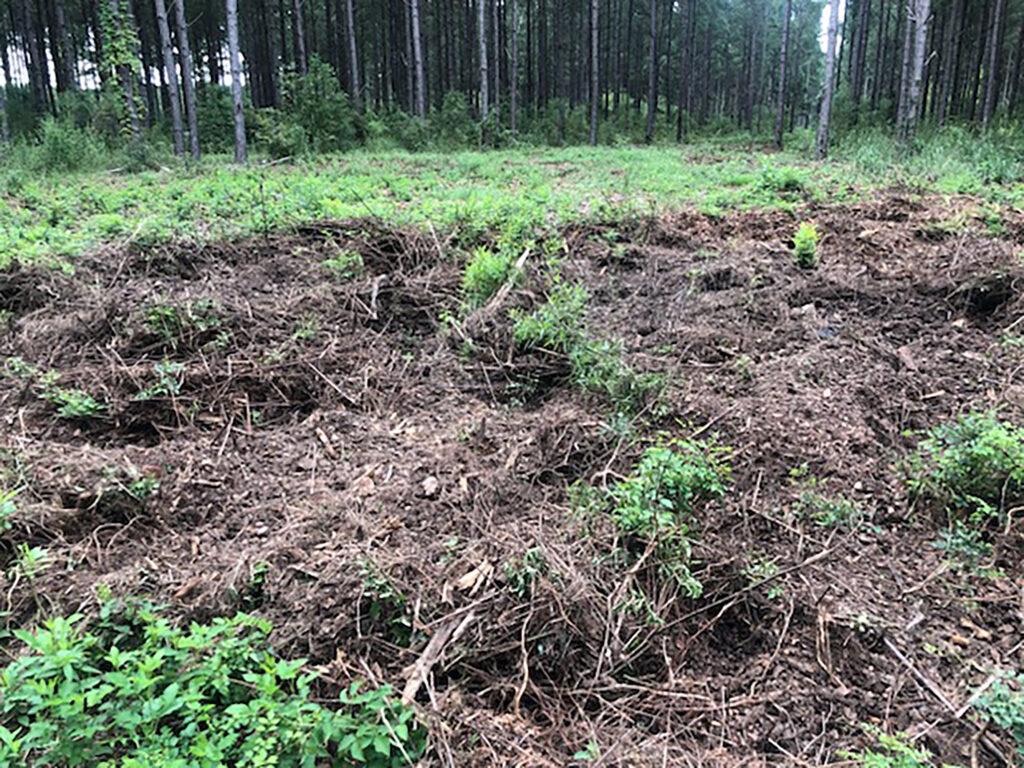West Alabama Program Helps Landowners Fight Invasive Species

By Maggie Edwards
Biodiverse ecosystems, invasive species and a community need led to a life-changing program in Sumter County, thanks to professionals at the University of West Alabama (UWA).
“Conservation is a big deal in Alabama,” said UWA’s Dr. John McCall. “Invasive species were a big deal, are a big deal now and are going to continue to get bigger.”
To combat the issue, teams at UWA and the Sumter County Soil and Water Conservation District designed the Partners Against Invasive Species (PAIS) program. UWA was named a Non-Land-Grant Agriculture College six years ago, which opened the door for new opportunities — including a U.S. Department of Agriculture grant that funded PAIS.
The boots-on-the-ground program is paying off.
Since 2018, program participants have captured 2,000 wild hogs and sprayed 6.3 million square feet of cogongrass.

The initial three-year PAIS program began in 2018 with four goals related to controlling wild hogs and cogongrass.
The team wanted to develop stakeholder awareness; help landowners control and manage invasive species; enhance educational opportunities for students earning degrees in conservation; and develop a regional center of expertise.
The program starts when a landowner reaches out for help and completes an assessment.
“We begin by putting game cameras out to verify their hog issue,” said McCall, who previously served as dean of UWA’s College of Natural Sciences and Mathematics. “Then our folks take traps out and set them up.”
Cogongrass is an invasive plant that restricts the growth of pine trees and is a fire hazard to fields and forests. PAIS student interns use spray tanks to cover large swaths of land and reduce growth of the weed.
“We hired students who were interested in this work, gave them training and sent them to work with landowners,” McCall said. “The grant funds intern salaries, boot camps and supplies, including hog traps and chemicals to spray cogongrass.”

Field coordinator and intern supervisor Drew Busby said it’s rewarding to watch interns help landowners and farmers.
“We get students from all backgrounds,” Busby said. “We teach them how to go out and serve the land.”
That service earned PAIS recognition at the Alabama Wildlife Federation’s 2022 Governor’s Conservation Achievement Award ceremony. Program leaders took home the Land Conservationists of the Year Award.
The success of PAIS led to PAIS 2.0 — Partners for Agricultural Innovation and Sustainability. The next-level, expanded program included work with Coastal Alabama Community College and East Mississippi Community College.
“This partnership helped us expand geographically but also in theme,” McCall said. “We addressed different areas focusing on ways to help landowners with prescribed fire, pollinators and soil.”
UWA and PAIS graduate research assistant Aubree Plymale was instrumental in starting the fire component, while other interns focused on beehives and supporting apiaries.

Sumter County Farmers Federation (SCFF) Secretary/Treasurer Micky Smith plays an integral role in the ongoing program.
“PAIS is the best outreach program this university has ever done,” said Smith, who chairs the Sumter County Soil and Water Conservation District board and is a professor at UWA. “It has allowed us to form a bond with local landowners.”
Longtime SCFF leader Pat Buck is one of many landowners benefiting from PAIS resources.
“Since the installment of my traps, we have seen a decline in our hog population,” Buck said. “This has been a lifesaver for Buck Farms. It has cut down on crop and equipment damage.”
PAIS resources also helped Buck fight cogongrass.
“Ninety-five percent of areas they have sprayed over the last several years have been cleared on the first visit,” Buck said. “Not only has this helped landowners like me, it has educated the community on issues in our part of Alabama.”
The impact of PAIS and PAIS 2.0 has rippled across west Alabama, said UWA’s McCall.
“A lot of people make their living on the land, and we want to help them,” he said. “We want to show them ways they can do this.”
